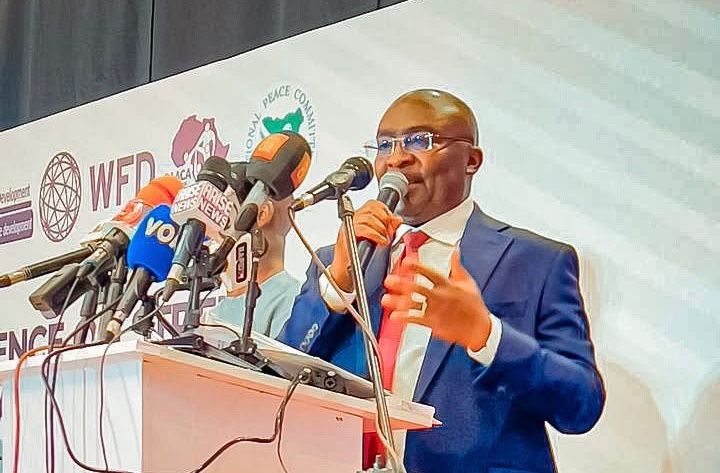In the aftermath of the New Patriotic Party’s (NPP) defeat in the 2024 Ghanaian general elections, former Vice President Dr. Mahamudu Bawumia has embarked on a nationwide tour to thank party loyalists and to project an optimistic outlook for the future. Despite the significant loss to the National Democratic Congress (NDC) and its candidate, John Dramani Mahama, Dr. Bawumia believes the NPP can reclaim power in the 2028 elections. He draws parallels to the party’s experience in the 2000 election, where former President John Agyekum Kufuor secured victory after an initial defeat in 1996. Kufuor’s vote share increased from 39% in 1996 to over 50% in 2000, a feat Bawumia believes the NPP can replicate. He argues that if the party could achieve such a significant turnaround in the past, surpassing the 50% threshold required for victory, then they can certainly do so again in 2028, building on their 41.7% vote share in the 2024 election. This optimistic projection forms the core of his message during the thank-you tour.
Dr. Bawumia’s optimism stands in contrast to the magnitude of the NPP’s defeat in the 2024 elections. The party not only lost the presidency but also suffered a substantial decline in its parliamentary representation, falling from 137 seats to 88. This represents a loss of nearly 50 seats to the NDC, which now holds a near two-thirds majority in Parliament. The presidential election results also reflect a considerable shift in voter preference, with the NPP losing by over 1.7 million votes to the NDC. This defeat shattered the NPP’s hopes of “breaking the eight,” a term referring to the historical eight-year cycle of alternating power between the two major parties in Ghana. The scale of the defeat necessitates a thorough introspection within the NPP, a process that Bawumia acknowledges through his reference to the party’s election review report.
The NPP’s post-election review identifies several key factors that contributed to their defeat. Among these are the perceived arrogance of power displayed by some party members, the unpopularity of the electronic transaction levy (e-levy), the economic hardship caused by the Domestic Debt Exchange Programme, and the general economic difficulties faced by Ghanaians. Dr. Bawumia’s acknowledgement of these issues during the tour indicates an understanding of the challenges the NPP faces and a willingness to address them in the lead-up to the next election cycle. This acknowledgement forms a crucial starting point for the party’s rebuilding efforts and its attempt to regain public trust.
Dr. Bawumia’s comparison to the 2000 election, while offering a glimmer of hope, also highlights the extensive work required for the NPP to recover from the 2024 setback. The political landscape has significantly changed since 2000, and the challenges facing the NPP are arguably more complex. The party needs to thoroughly analyze the reasons for its decline in popularity, address the concerns raised by voters, and present a compelling vision for the future. The former Vice President’s emphasis on Kufuor’s comeback story serves as a motivational tool for party members, encouraging them to remain engaged and work towards rebuilding the party’s support base.
Beyond the immediate goal of reclaiming power, the NPP faces the larger challenge of maintaining its relevance in the evolving Ghanaian political landscape. The party’s traditional strongholds appear to have weakened, and it needs to devise strategies to reconnect with voters who have shifted their allegiance. This requires more than just acknowledging past mistakes; it necessitates demonstrating a genuine commitment to addressing the concerns that led to the party’s decline. The thank-you tour, while primarily aimed at expressing gratitude to loyal supporters, also provides an opportunity to begin this process of rebuilding trust and re-engaging with the broader electorate.
In essence, Dr. Bawumia’s message during the nationwide tour is one of cautious optimism tempered by a realistic assessment of the challenges ahead. While drawing inspiration from the past, he acknowledges the need for introspection and reform within the NPP. The party’s ability to regain public trust and reclaim power in 2028 will depend on the effectiveness of its efforts to address the concerns raised in the election review and to present a convincing alternative to the current administration. The road to recovery will undoubtedly be long and arduous, but Bawumia’s message seeks to inspire hope and motivate the party to embark on the necessary journey of rebuilding and renewal.














